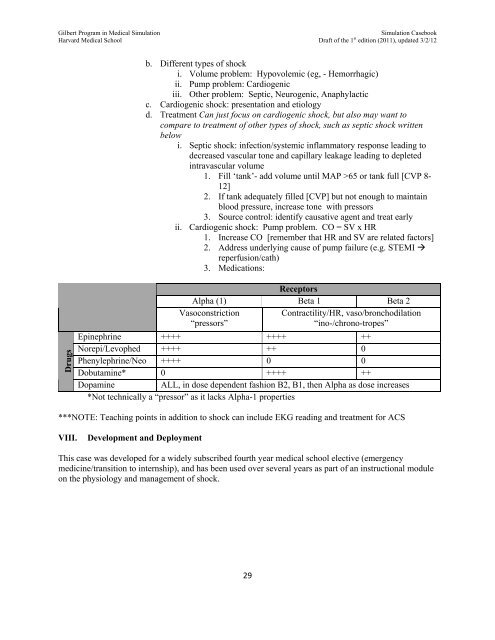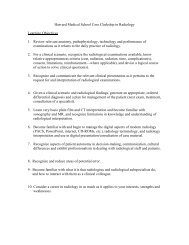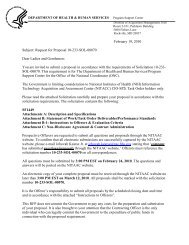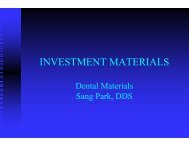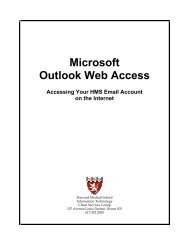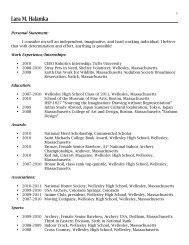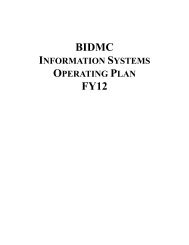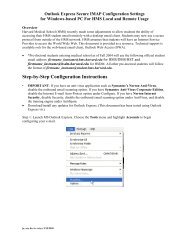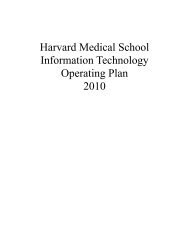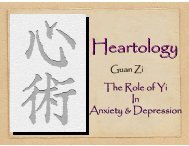SIMULATION CASEBOOK - MyCourses
SIMULATION CASEBOOK - MyCourses
SIMULATION CASEBOOK - MyCourses
You also want an ePaper? Increase the reach of your titles
YUMPU automatically turns print PDFs into web optimized ePapers that Google loves.
Gilbert Program in Medical Simulation<br />
Simulation Casebook<br />
Harvard Medical School Draft of the 1 st edition (2011), updated 3/2/12<br />
Drugs<br />
b. Different types of shock<br />
i. Volume problem: Hypovolemic (eg, - Hemorrhagic)<br />
ii. Pump problem: Cardiogenic<br />
iii. Other problem: Septic, Neurogenic, Anaphylactic<br />
c. Cardiogenic shock: presentation and etiology<br />
d. Treatment Can just focus on cardiogenic shock, but also may want to<br />
compare to treatment of other types of shock, such as septic shock written<br />
below<br />
i. Septic shock: infection/systemic inflammatory response leading to<br />
decreased vascular tone and capillary leakage leading to depleted<br />
intravascular volume<br />
1. Fill ‘tank’- add volume until MAP >65 or tank full [CVP 8-<br />
12]<br />
2. If tank adequately filled [CVP] but not enough to maintain<br />
blood pressure, increase tone with pressors<br />
3. Source control: identify causative agent and treat early<br />
ii. Cardiogenic shock: Pump problem. CO = SV x HR<br />
1. Increase CO [remember that HR and SV are related factors]<br />
2. Address underlying cause of pump failure (e.g. STEMI <br />
reperfusion/cath)<br />
3. Medications:<br />
Receptors<br />
Alpha (1) Beta 1 Beta 2<br />
Vasoconstriction<br />
“pressors”<br />
Contractility/HR, vaso/bronchodilation<br />
“ino-/chrono-tropes”<br />
Epinephrine ++++ ++++ ++<br />
Norepi/Levophed ++++ ++ 0<br />
Phenylephrine/Neo ++++ 0 0<br />
Dobutamine* 0 ++++ ++<br />
Dopamine<br />
ALL, in dose dependent fashion B2, B1, then Alpha as dose increases<br />
*Not technically a “pressor” as it lacks Alpha-1 properties<br />
***NOTE: Teaching points in addition to shock can include EKG reading and treatment for ACS<br />
VIII.<br />
Development and Deployment<br />
This case was developed for a widely subscribed fourth year medical school elective (emergency<br />
medicine/transition to internship), and has been used over several years as part of an instructional module<br />
on the physiology and management of shock.<br />
29


